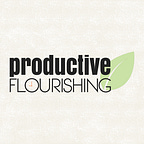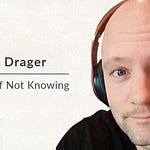In the 11th question and answer episode, Angela and Charlie answer questions from the Productive Flourishing Community and the Campfire. The answers focus on habit stacking, how to focus on important but not urgent projects, and a few tips on Medium.
[1:17] - The first question from the Campfire: Are there any resources, links, or suggestions Charlie can offer about habit stacking? What teachables can be broken down into hacks, and how can we take tiny habits and build them up?
[1:55] - Habit stacking is the concept of having a habit that you already do, and following it with a habit that you’re trying to learn. Oftentimes, people think too big with habits - narrow the focus of the habit down to something more specific. Charlie shares an example in his life of how he was able to use habit stacking to accomplish more during his morning routine. He calls each of these habits “micro-habits.” The importance of habit stacking is that it sets up a mental default that gets you going.
[7:05] - As a teacher, you want to think in reverse. What a learner needs is a micro-action to get started - break down what you’re going to be teaching into the smallest possible chunk. His example reminds us to make sure that our learners actually know how to do everything they need to do to accomplish the larger action.
[10:12] - What’s an action item? An action item is similar to a “to-do” item. To write an action item, you want to create a verb-noun construct: place a verb in front of the noun that is the item of consideration. This question is a great example of being able to break down something familiar or routine to explain the process to new learners.
[14:40] - The second question also comes from the Campfire - how do you decide which important but not urgent projects to focus on first? The projects that tie in more to your priorities and values are always going to beat smaller projects that don’t tie in to your priorities and values. Sometimes, what we want to be the most important things for us are not the most important.
[18:01] - Fear can influence the way we prioritize; typically, it may be fear of ostracism or fear of appearing incompetent. One of the ways to get important but not urgent projects to the top is to become truly aware of what your priorities are. If it truly is more important, the next step is having the courage to claim its importance and make the space for yourself to work on that project. The second way to move those projects up is to identify the fear and “claim it, name it, tame it.”
[22:30] - Finally, give yourself time to get through the discomfort of not knowing what you’re doing or how it’s going to turn out. Lean into the creative tension until something starts flowing.
[24:05] - What about the things that are important to do but perhaps not the most desirable or exciting? Charlie talks about a chart he adapted to help make these comparisons. Sandwich these things in between projects you want to do.
[29:00] - The last question comes from the Campfire as well: does Charlie have any advice, tips, or suggestions on using Medium?
[29:27] - Medium is a hybrid product that is a mixture of a hosting platform, a social community, and a product. It’s like Facebook, but it’s for most long-form posts and a variety of essays and articles.
[32:43] - Your profile will show everything that you’ve written, everything that you’ve responded to, and everything that you’ve recommended. In addition, everything on Medium can be “tagged,” and anyone who follows these tags or topics will eventually see posts about them. Medium is a great way to discover all sorts of writers and various topics. Charlie also suggests following publications.
[35:49] - Charlie loves Medium because the comments are really good. There is an interactive element that allows you to address specific elements of a post. To get started, set up your profile and follow topics that interest you. Respond to the content that shows up for you.
[39:41] - The hierarchy of content on Medium is really flat. Every response on Medium shows up as a story- it does not differentiate between leaving a comment and writing a story.
[42:11] - Angela talks about the thread running through all these responses to questions: bigger is not always better. It is about the small steps we can take to be part of the bigger world of any of these topics. Charlie then ties this point to how we can build upon smaller things to do something big in the world.
Mentioned in This Episode:Creative Giant Campfire Facebook Group
How to Referee Your Project Cage Match, on Productive Flourishing
A Frog A Day Keeps Your Anchors Aweigh, on Productive Flourishing












